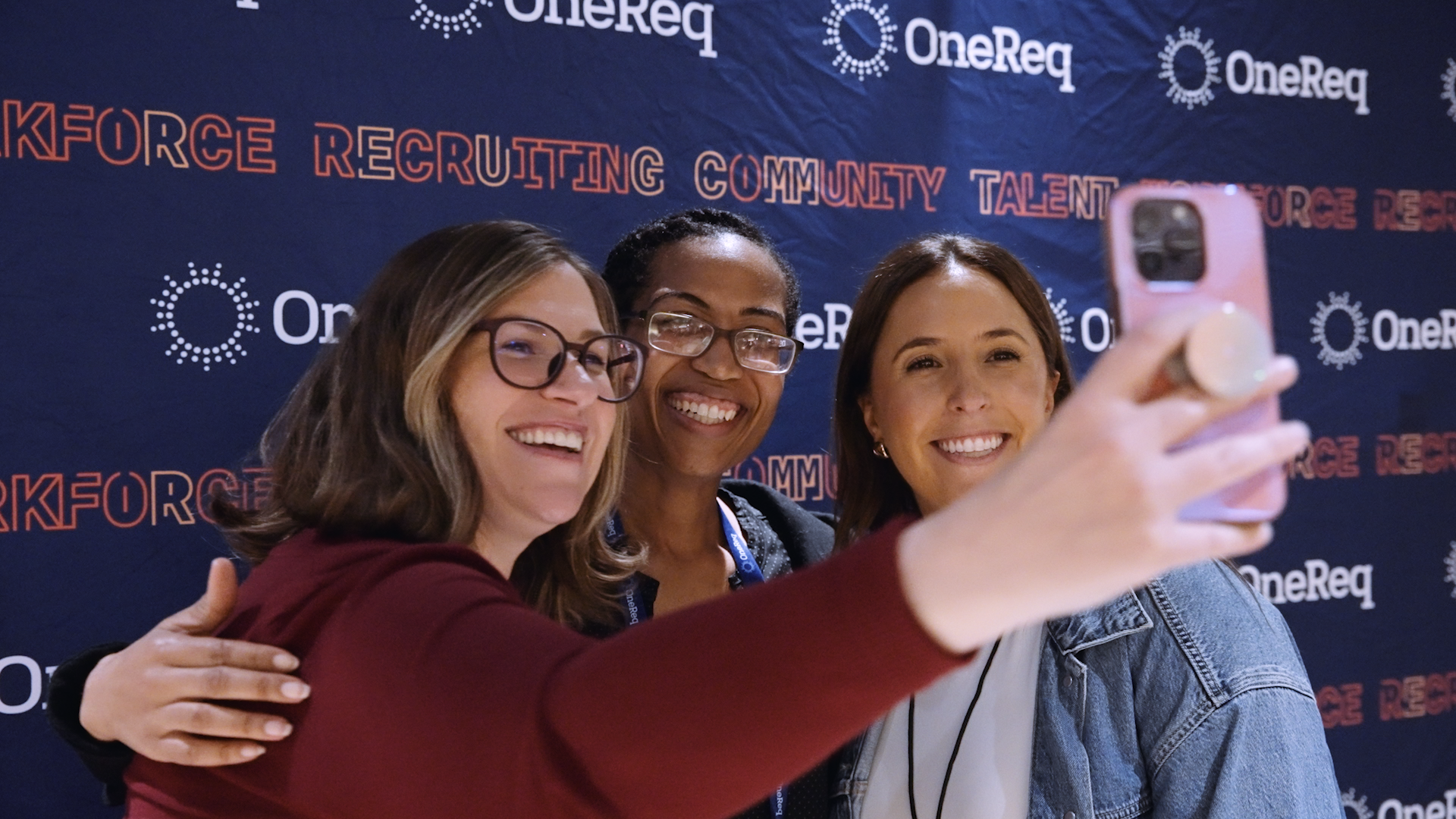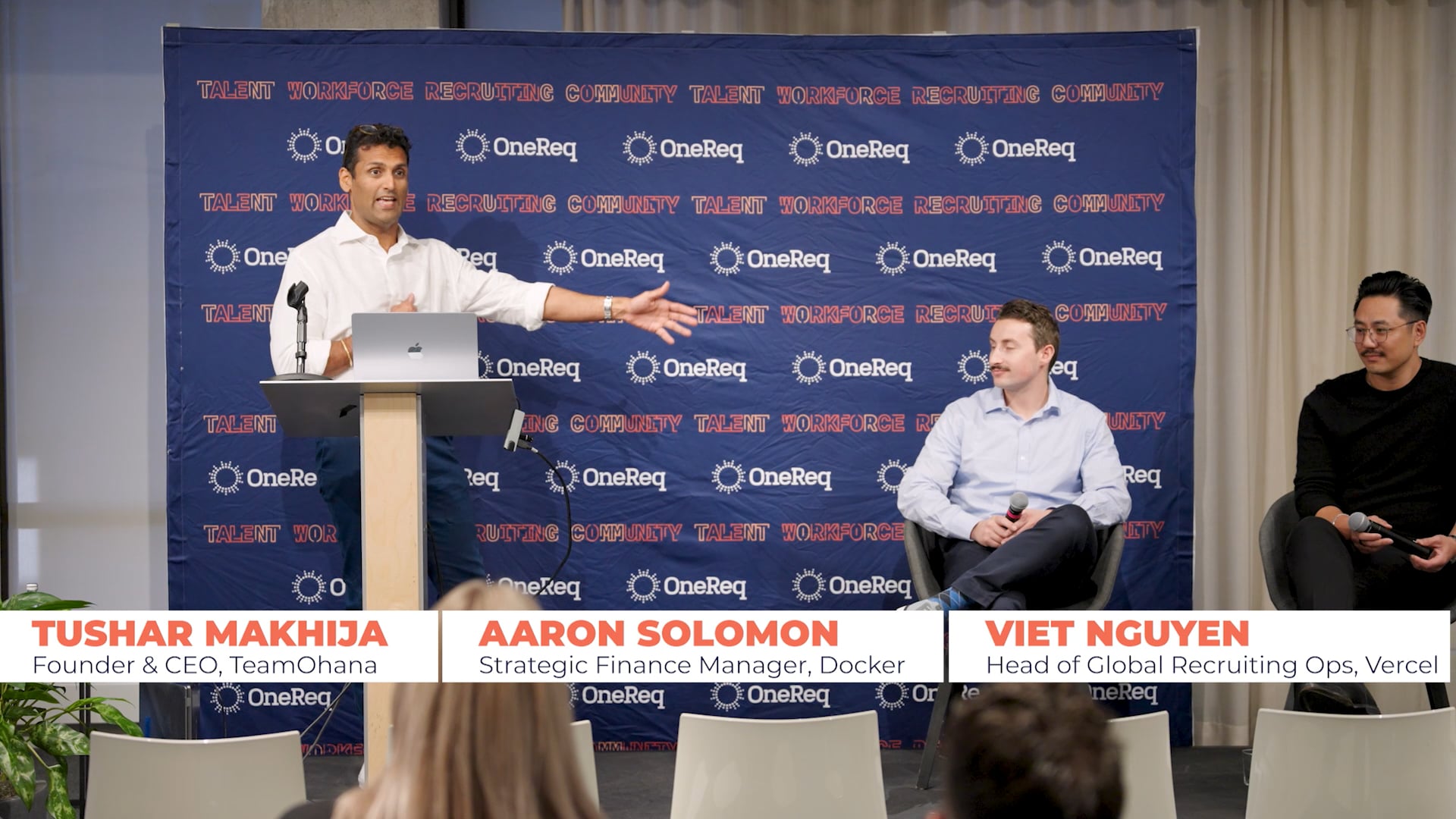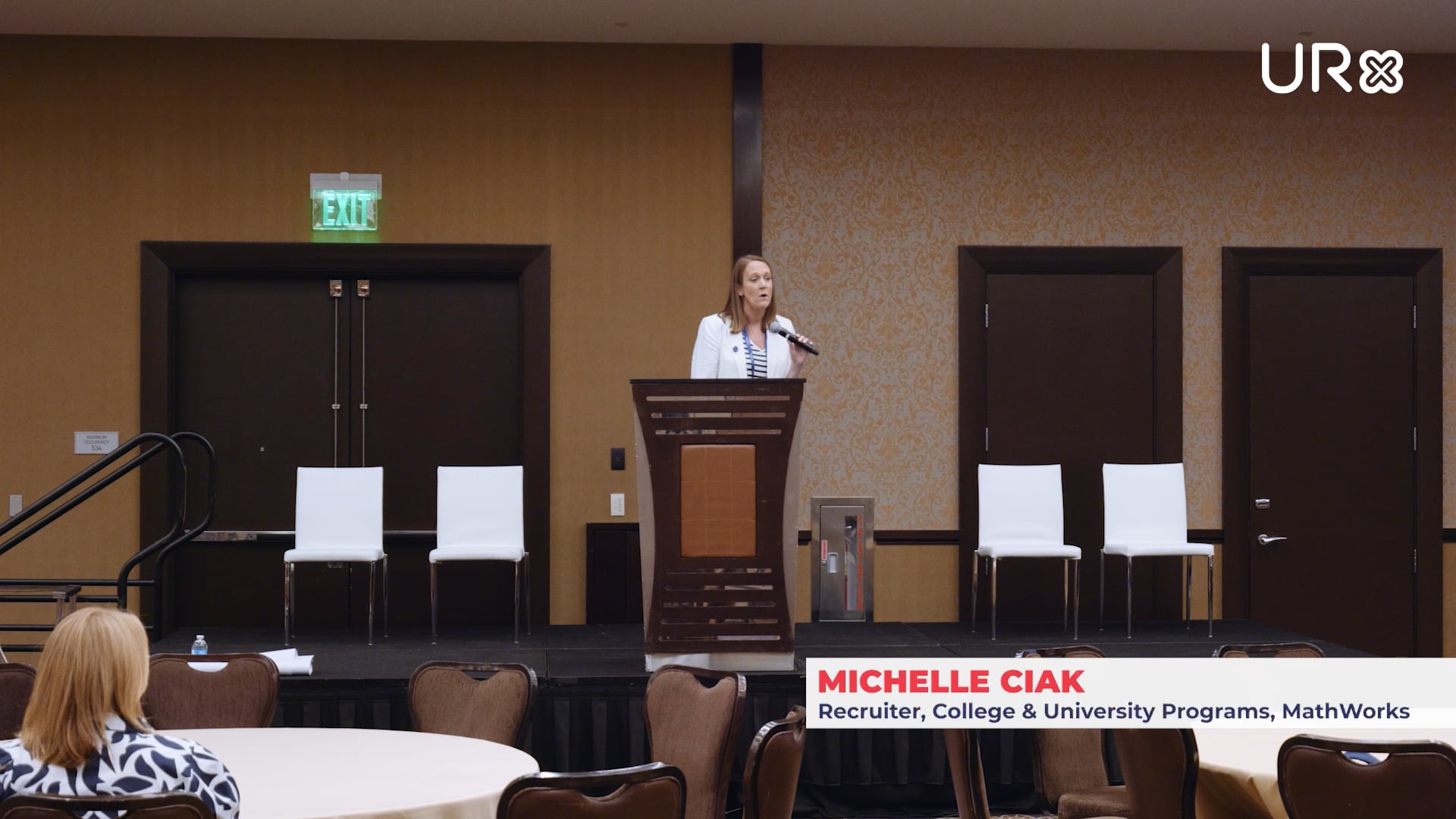Our recent University & Emerging Talent Leaders Masterclass underscored the importance of adaptability, strategic thinking, and data-driven decision-making in overcoming early talent recruitment challenges. By applying the insights and solutions shared, you can strengthen your early talent program for lasting success. Let’s explore the six key challenges discussed and the strategic solutions provided to address them effectively.
Capturing Student Interest Without a Finalized Headcount
Challenge: How might I capture students’ interest at campus events if my intern headcount is not yet finalized?
When attending campus events without a finalized intern headcount, maintaining student interest can be challenging. A practical approach is to focus on your company’s growth and expansion plans. This helps position your organization as a dynamic and promising place to work, even if specific opportunities aren’t yet defined. Additionally, creating an ambassador program allows current interns or recent hires to share their experiences, adding authenticity to your brand and making it more relatable to students. A simple yet effective strategy is to collect student information through an interest form. This enables you to build a database of interested candidates, allowing you to follow up once the headcount is finalized.
Justifying Additional Resources for Your Team
Challenge: How might I create a business justification to request additional resources for my team?
Securing additional resources requires a solid business case. One successful approach is to present a cost-benefit analysis that clearly outlines how the requested resources will lead to improved ROI. Including testimonials from hiring managers who support the need for these resources can add weight to your argument. Moreover, presenting evidence from other companies that have successfully implemented similar resources can demonstrate that this is a best practice within the industry.
Measuring Recruiter Success with Variable Metrics
Challenge: How might I create metrics to measure recruiter success that are variable and can be tied to reporting?
Measuring recruiter success is critical for continuous improvement and accountability. To create meaningful metrics, it’s essential to align them with overall recruiting goals, such as the percentage to headcount goal, diversity of the pipeline, and offer acceptance rate. Leveraging your Applicant Tracking System (ATS) to track application volume, diversity, and offer outcomes can provide quantifiable data that ties directly to recruiter performance. Additionally, implementing feedback surveys from interns and internal stakeholders can help capture qualitative data that reflects recruiter effectiveness.
Gaining Budget Support for Intern Programs
Challenge: How might I obtain yearly budget support for interns, intern conversions, and new graduates?
Gaining budget support requires a strategic approach, especially when advocating for intern programs. Using historical data and trends to forecast headcount and propose a budget is a strong starting point. Highlighting the long-term benefits of intern conversions, such as reduced hiring costs and the successful integration of early career talent, can help make your case. When budgets are tight, presenting a cost-effective strategy that emphasizes essential program elements can demonstrate your understanding of fiscal constraints while advocating for the program’s value.
Reinvigorating Early Talent Investment After Budget Cuts
Challenge: How might I convince the business to reinvest in early talent again after we’ve reduced the budget?
When budget cuts impact early talent programs, it’s important to reframe the conversation around the strategic value of early talent. Emphasizing the role of early talent in pipeline building, succession planning, and bringing fresh perspectives can help reignite interest. Offering various budget scenarios, from low to high-cost options, can provide flexibility and show that you’re prepared to adapt the program to current financial realities. Additionally, showcasing data-driven results, such as previous intern conversions and their impact on the business, can help build a compelling case for reinvestment.
Creating an Engaging “Keep Warm” Strategy Amidst Restructuring
Challenge: How might I create an engaging keep warm strategy amidst global restructuring?
During times of restructuring, keeping potential future talent engaged is crucial. One effective strategy is to maintain engagement through virtual panels featuring employee ambassadors and alumni. These sessions can be added to platforms like RippleMatch to keep your brand alive and maintain relationships with top talent. Additionally, creating a LinkedIn group for past interns allows for ongoing communication and keeps your company top of mind as they progress in their careers.
About OneReq Leaders
The OneReq Leaders Membership provides a dynamic Community of Practice designed to elevate your recruiting function and career. Enjoy access to expert leadership coaching, a trusted peer network, and valuable data insights, alongside streamlined access to resources such as workshops, benchmarking, and exclusive events, all aimed at enhancing your professional growth and impact.
Learn More




